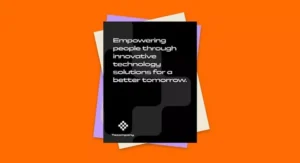
According to YCombinator, the number of firms accepted into its accelerator for the summer 2022 class has been purposefully reduced. According to The Information, who broke the story first, and TechCrunch, who independently confirmed it, Y Combinator’s summer 2022 cohort, which is currently in operation, has approximately 250 firms, down 40% from the last batch, which had 414 companies.
The batch is still significant “compared to the previous five years of batches,” according to Y Combinator’s head of communications Lindsay Amos, who verified the drop via text message.
“The batch size for S22 is considerably lower than that of our most recent batches. The declaration states that this was done on purpose. According to Amos, YC cut back on the amount of firms it supported between W22 and S22 as a result of the recession and changes in the venture capital landscape. Many investors contend that since pre-seed and seed-stage firms are so far removed from late-stage prices, the environment in which YC’s accelerator mostly operates has been immune to macroeconomic stresses. This most recent action by YC shows that early-stage businesses are not exempt from the consequences of the recession.
The accelerator told the founders in its portfolio to “prepare for the worst” in May.
In an economic crisis, “you may easily pick up considerable market share by merely surviving,” leading startup incubator Y Combinator advised its founders in an internal e-mail this week. The tip was one of ten bullet points in a document intended to assist businesses deal with the tech-crushing economic crisis. “No one can foresee how terrible the economy will get, but things don’t look good,” is another memorable quotation.
The email represented a change in attitude from only a few weeks before, when Demo Day saw the public debut of hundreds of Y Combinator firms, many of which had previously obtained venture capital. The businesses were keenly focused on global opportunities and were the first to receive Y Combinator’s new $500,000 standard check. Currently, YC is stating, among other things, that “this delay will have a disproportionate impact on multinational enterprises.”
The confirmation from today, which comes before a Demo Day in September, demonstrates how things have evolved.
The batch size has always fluctuated from season to season and year to year since we are continuously analysing every component of our batches and the environment in which the firms will be functioning, Amos said via text.
Future batches of Y Combinator may or may not continue to function in a more concentrated manner. In response to a question, Amos stated that YC had just begun collecting applications for the following batch and will choose the batch size after considering “every facet of our batch and the ecosystem in which the firms would be functioning.”
The ever-increasing batch size at Y Combinator has been a frequent, if not cliched topic of discourse among techies over the years. Some contend that Y Combinator’s bloated size has diminished the participants’ capacity to stand out. In the meanwhile, the organisation recently told tech blog Newcomer that it might envision itself supporting 1,000 businesses at a time. According to Amos, YC did not cut back as a result of criticism or the expense of its expanding check size.
Due to a lack of competition, the change will undoubtedly assist students in the current cohort stand out. Another inadvertent method that YC supports the marketing of its businesses is in this way. Y Combinator has unveiled Launch YC, a portal where users can browse accelerator companies by batch, industry, and launch date to find new goods.
As I stated at the time, Launch YC appears to be Y Combinator’s thoughtful response to one of the model’s most vocal recent criticisms: Being unique within a batch has become more difficult than ever as the cohort size has increased. Depending on how you interpret it, today’s announcement may offer another another answer to concerns about YC’s distribution effectiveness.







